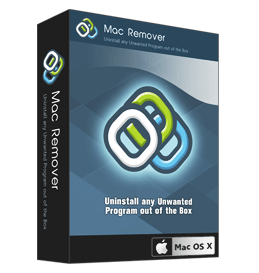
I would like to try it.
- Version: 2.50.01
- File Size: 3.8M
- Systems: Mac OS X 10.9+
- DOWNLOAD NOW
How to Remove DateServices 1.1 in Mac OS X
This article is teaching you how to correctly remove DateServices 1.1 in Mac OS X. Before performing the removal, let’s get to know more about Mac OS X, so that we will be able to safely, completely remove DateServices 1.1.
Over the years, Mac OS has never given up on the desktop market. Evolved from Mac OS 9 to X, it went through eleven significant upgrades -- Cheetah, Puma, Jaguar, Panther, Tiger, Leopard, Snow Leopard, Lion, Mountain Lion, Mavericks, and Yosemite, becoming more and more adaptive and user-friendly. The El Capitandu version in particular, fixed many bugs while a lot of new features have been added, and system security has been greatly enhanced as well. From these improvements, more and more developers find business opportunities and engage in designing apps for Mac. However, due to the distinctiveness of Mac OS X, its uninstallation can be quite distinctive to former Windows users, who might need a bit more operating system knowledge instead of simply dropping an app down the Trash.
So, how should we correctly, completely remove DateServices 1.1?
Download Mac App RemoverGenerally, Manual Removal Requires the Following Steps:
Step 1: open the Activity Monitor, and search for the processes related to DateServices 1.1, then quit them one by one.

Step 2: Check whether DateServices 1.1 has its own built-in uninstaller. If it does, we use it. How to find its uninstaller?
- 2.1 Go to Find -> Go -> Application
- 2.2 Locate DateServices 1.1, right-click on it then select Show Package Contents
- 2.3 See if there is any file with “uninstall” or “remove” in its name, which should be the built-in uninstaller of an application. And we run it to activate the removal.


Step 3: If DateServices 1.1 doesn’t have its own uninstaller or you can’t find it, the operations can be a bit complicated.
Download Mac App Remover- 3.1 In the upper-right corner of your screen, click the Magnifier icon to open Spotlight Search. Type “DateServices 1.1” in the box, and you will see the related folder(s)/file(s). According to the result, respectively drag it (them) to the Trash.
- 3.2 To fully remove DateServices 1.1, we need to check the following folders for its remaining files, whose name should contain “DateServices 1.1.”
- 3.2.1 Application Support
- 3.2.2 Caches
- 3.2.3 Containers
- 3.2.4 Frameworks
- 3.2.5 Logs
- 3.2.6 Preferences
- 3.2.7 Saved Application State
- 3.2.8 WebKit
- 3.3 Some files of DateServices 1.1 could be set as “Read only”, so to find those files we shall change the settings to “Everyone > Read & Write.”


Performing the above steps should perfectly remove DateServices 1.1.
Although the manual uninstallation is able to remove the apps you don’t want, it may take much time, and not everyone is tech-savvy enough to do that without involving in possible risks, for example, the mistaken deletion that leads to system crash.
To spare yourself the unsafe elements, you might as well try out a professional third-part tool, like MacRemover -- a small-sized but powerful Mac App uninstaller that supports the One Click Remove feature.
How to Remove DateServices 1.1 with MacRemover?
Download Mac App Remover- 1> Download MacRemover.
- 2> Run it, select DateServices 1.1 in the list of installed applications, then click the “Run Analysis” button.
- 3> MacRemover will analyze the installation information of DateServices 1.1.
- 4> After the analysis, click “Complete Uninstall” to perfectly remove DateServices 1.1.



Manual Removal & Auto Removal - How to Choose?
- 1> If you are a sophisticated user of Mac OS X and know well of its operating theory, then you can consider manual removal.
- 2> If you are a newbie to Mac OS X, then a third-party removal tool is suggested. Because these tools can automatically analyze & recognize the files which need to be deleted, and save a lot of time that you can spend working on your Mac.
